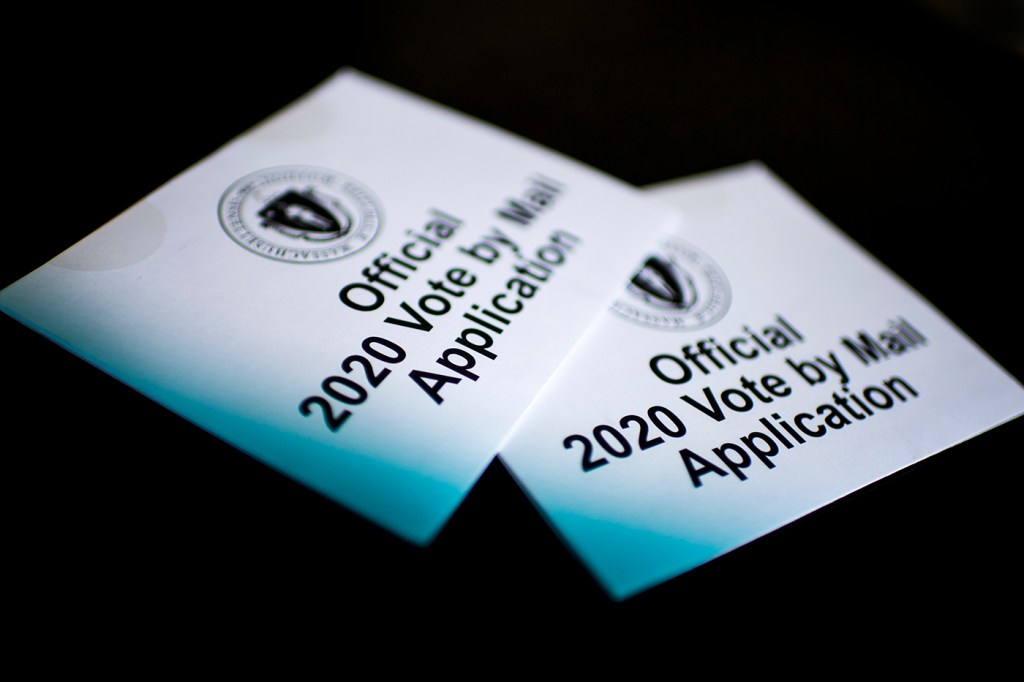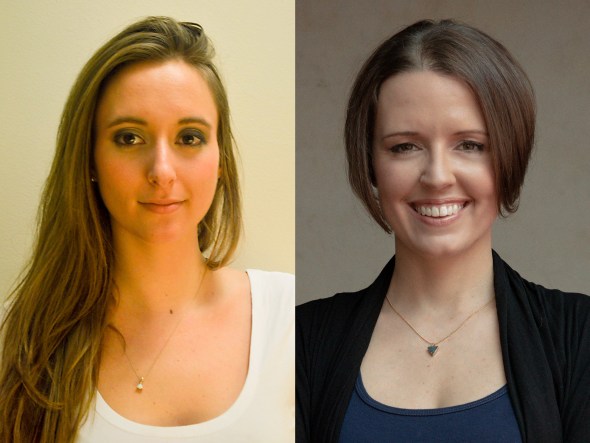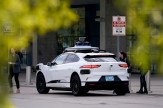Will young voters show up to the polls (or the mailbox) for this election?

We hear the same refrain every time election season rolls around–This is going to be the most important election of our lifetime.
Yet for all the gravity Americans say they place on voting, and especially lately with all the talk of the Postal Service, people just don’t seem all that interested in their civic duty.
Voter turnout is often anemic, with the United States ranking far behind Belgium, Denmark, South Korea, and other democracies. About 56 percent of the total U.S. voting age population filled out a ballot in 2016.
Among young voters the situation is even more worrisome.
Except for the 2018 midterms, which saw participation among 18- to 29-year-olds soar from 20 percent in 2014 to 36 percent in 2018–the largest percentage point increase for any age group–the demographic by and large has been under-represented at the polls ever since 18-year-olds were given the right to vote.
Emily White and Melanie Shark are working to change that.

Northeastern graduates Melanie Shark (left) and Emily White. Courtesy photos
The Northeastern graduates lead the non-partisan #iVoted initiative, which offers a unique carrot and stick approach; anyone who sends a selfie with the hashtag taken outside their polling place or holding their blank voting ballot receives a link to free online access to more than 380 live concerts.
All events will air on Nov. 3, Election Day in the United States.
Music fans who aren’t old enough to cast a ballot, or those outside the country who can’t vote, can still catch the livestream.
With more bands being added, #iVoted 2020 is shaping up for what will be the largest single night digital concert ever.
White and Shark make it clear that #iVoted doesn’t endorse candidates or parties, but there is a political strategy behind the bands that were chosen.
Acts were largely determined by statistics pinpointing the favorite artists of key geographic areas that are vital in the polling process, including swing states and states that reflected low voting numbers in prior elections.
Citizen Cope, for example, was raised in Washington, DC, where fewer than eight percent of residents in underserved communities showed up for the 2018 mayoral race. Parrotfish is a foursome whose members are originally from Florida, a battleground state.
“I was really disappointed to see such low voter turnout numbers in 2016 among all age groups, but especially younger ones,” said White, who founded the organization in 2017, 12 years after graduating from Northeastern with a music industry major.
She is a strong believer in sharing experiences with others. Lessons learned from eight co-ops in college were captured in her first book, Interning 101. A highlight was serving as tour manager for the Boston duo Dresden Dolls while attending classes.
Later she published a new book in 2020, How To Build a Sustainable Music Career and Collect All Revenue Streams. which she discussed in a webcast with Northeastern’s College of Arts, Media and Design.
Shark, who also studied the music industry, graduated in 2014 and serves as #iVoted’s chief operating officer. She did a co-op in London with Kobalt Music Group, the big independent music publisher whose artist catalogue includes Bob Marley, Paul McCartney and Kelly Clarkson.
By day she works in the legal department at the Kennedy Center in Washington, D.C., which ended all live performances when the pandemic hit. Shark has been on furlough ever since.
In keeping with efforts to limit the spread of COVID-19, #iVoted’s election night bands will perform from home or in empty venues, unlike in 2018 when tickets were handed out for live, in-person performances by the likes of Drive-by Truckers, Ty Segall, and Julien Baker.
Tying music and politics is a good motivator for getting people to cast ballots. It just depends on who the message is coming from, Shark says.
“U.S. culture is very celebrity-focused, so having a celebrity tell people to go vote can be more impactful than hearing the same thing from a politician,” she says. It gets people excited about voting.”
To accomplish that effort, #iVoted goes beyond what other get-out-the-vote groups offer.
“What we do differently is we follow the voter from registration all the way to the moment they cast a ballot,” White said.
Her ties with Northeastern are never far.
Volunteers from the university will serve as artist liaisons leading up to and on Election Day, helping musical acts with technical issues, among their duties. Volunteers include Tim Van Bloem, a tenor in the Nor’easters, a Northeastern a cappella group, and Risa Tapanes, a music reporter at Boston radio station WGBH.
The concert touring industry had one its best years financially in 2019 thanks to Pink, Elton John, Ed Sheeran, Metallica, and the Rolling Stones. They collectively accounted for nearly $1 billion in gross revenue. This year was poised to be even more successful before the pandemic put an abrupt end to big crowds.
Live performances are slowly coming back. Some are happening at drive-in theaters, others in a bus. But the sight of thousands of Drake fans crammed tightly together in an indoor arena is still a distant dream.
To White and Shark, though, that day can’t come soon enough.
“My heart is so with live music,” said White.
But one thing the pandemic has done in a positive way is improved the online experience, expanding artists’ audience reach. So while some fans may still want to sit three rows from the stage at a live show, others may be content watching from their laptops.
“Nothing replaces the magic and experience of live music, and experiencing it with others,” said Shark, a singer-songwriter who plays piano. “But some people are seeing more shows now online than they ever saw in person, and some may want to continue doing so post-pandemic.”
For media inquiries, please contact media@northeastern.edu.





